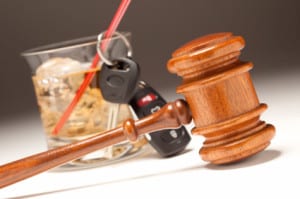 Ignition interlock devices (IIDs) are rapidly becoming a solution to the pervasive problem of drunk driving. An IID helps establish the sobriety of a driver prior to operating a vehicle, as well as while the vehicle is in motion, and is typically part of a DUI/DWI court sentence for a convicted offender. Because of the success rate attributed to ignition interlock devices, there is always the question of why more IIDs are not installed prior to a court date in order to ensure the sobriety of the accused offender and allow him or her to continue to work or fulfill other life obligations. Unfortunately, the answer is not that simple.
Ignition interlock devices (IIDs) are rapidly becoming a solution to the pervasive problem of drunk driving. An IID helps establish the sobriety of a driver prior to operating a vehicle, as well as while the vehicle is in motion, and is typically part of a DUI/DWI court sentence for a convicted offender. Because of the success rate attributed to ignition interlock devices, there is always the question of why more IIDs are not installed prior to a court date in order to ensure the sobriety of the accused offender and allow him or her to continue to work or fulfill other life obligations. Unfortunately, the answer is not that simple.
In some cases, depending on the state and even local law enforcement jurisdiction, a person who has been charged with a DUI/DWI can opt to install an ignition interlock device in a vehicle, rather than face the suspension or revocation of driving privileges. In limited areas across the U.S., there is also the chance that upon arrest and with criminal charges pending, a suspect can be ordered by the court to use the IID until the DUI/DWI charge is resolved. Still, it seems that while the success of IIDs continues to be proven, not all jurisdictions are able to order the installation of an IID before a DUI/DWI conviction, or, the jurisdictions require the person to apply for the IID after the license suspension period has terminated.
Since ignition interlock devices continue to assure safe, sober driving habits, there can be no doubt that installing an IID prior to a court date can benefit the accused, as well as others on the road. Ignition interlock devices have been noted to reduce the rate of repeat drunk driving offenses by 67% and are a strong deterrent to any person who may consider driving drunk.

Leave a Reply
You must be logged in to post a comment.